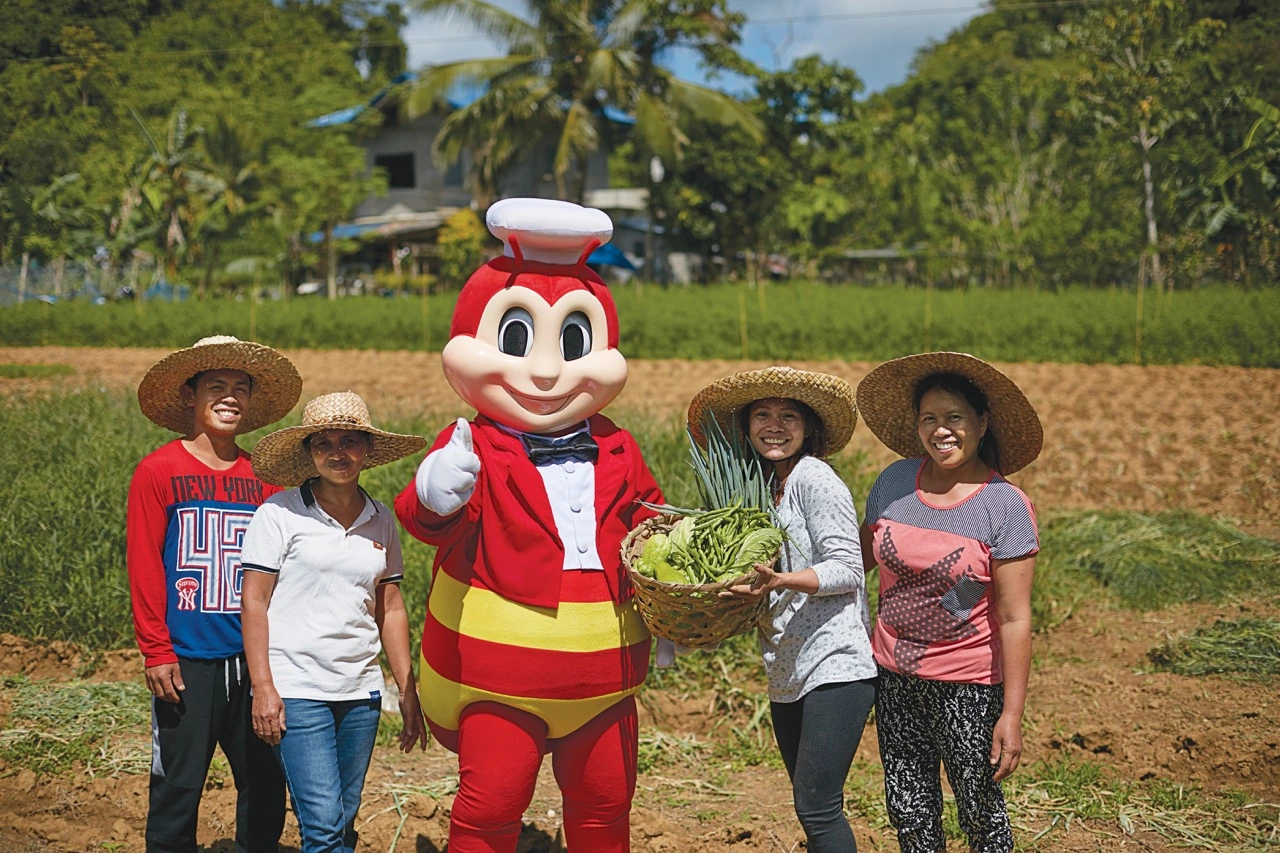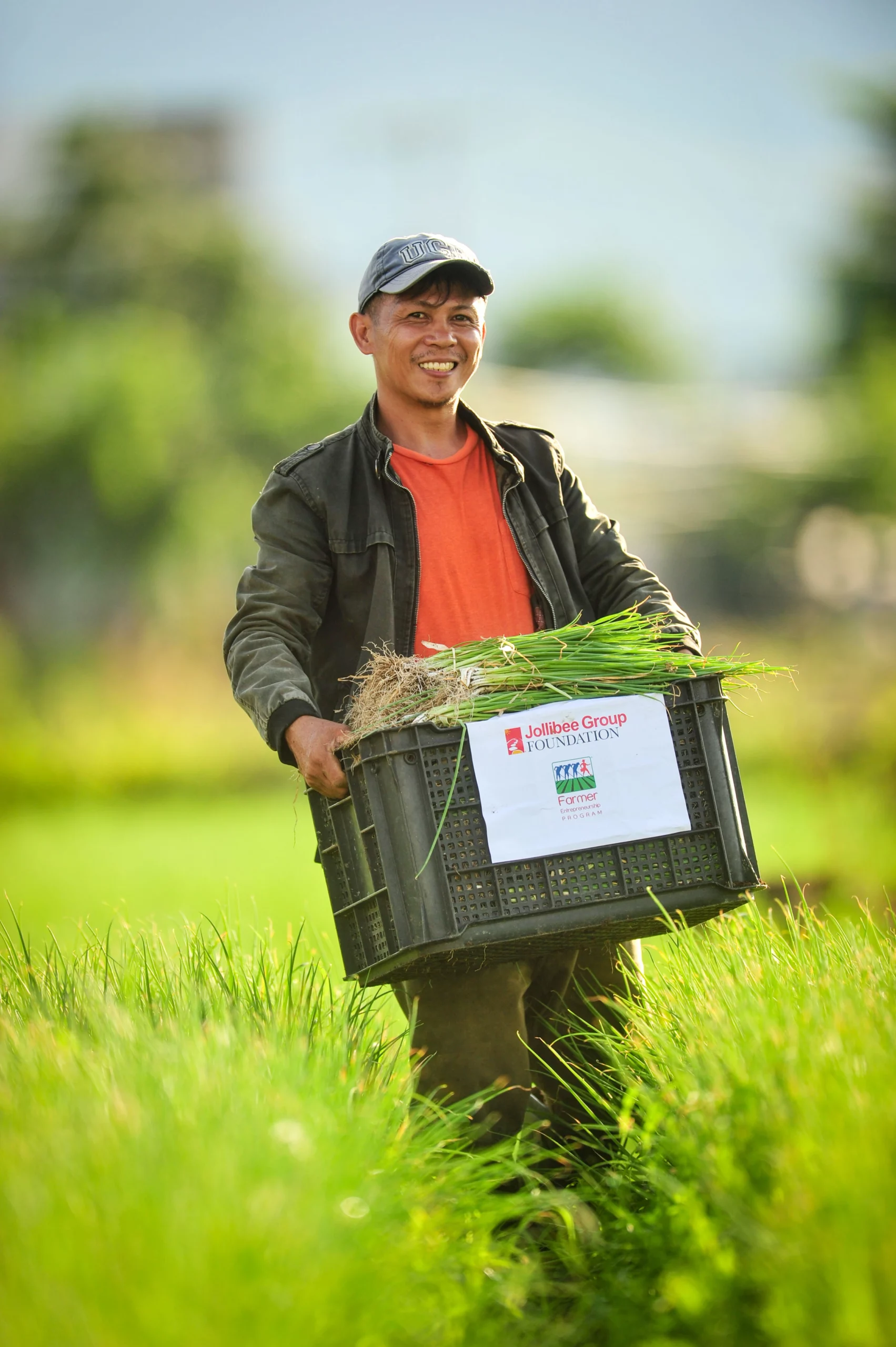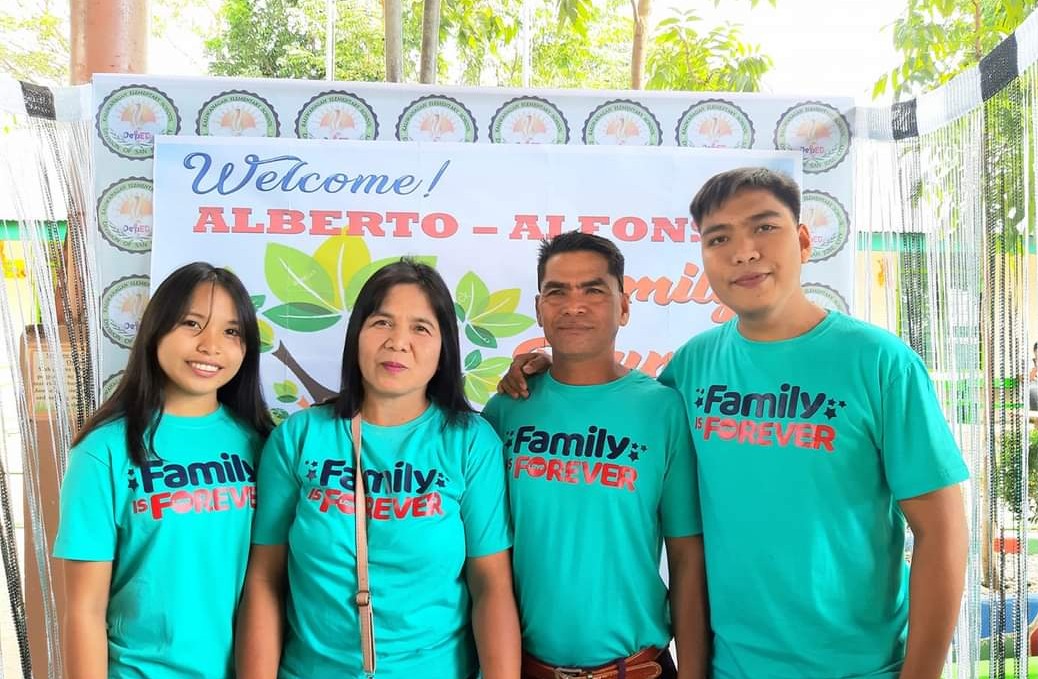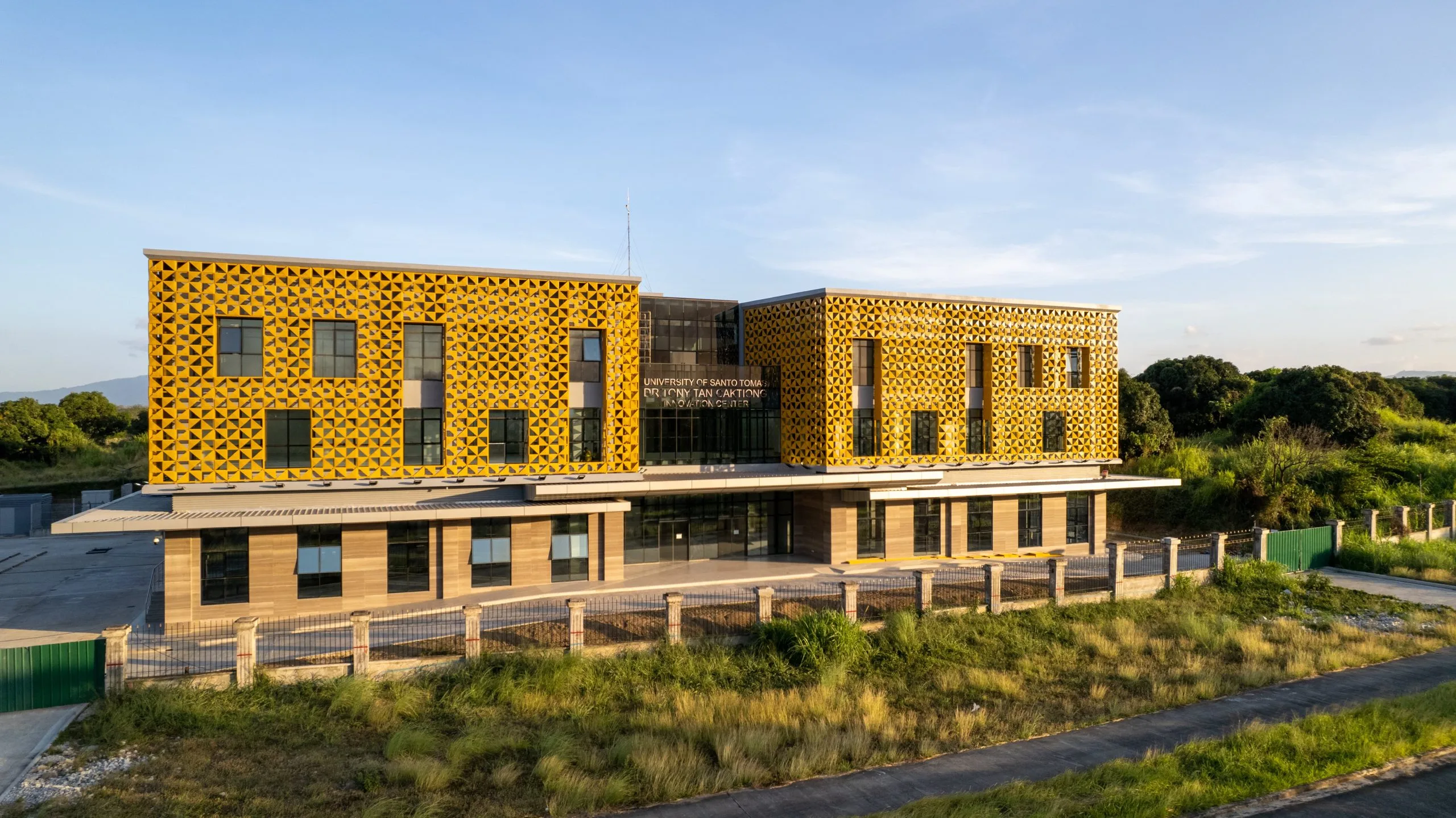
Since 2008, Jollibee Group Foundation has worked with partners through the Farmer Entrepreneurship Program to equip farmers with business and leadership skills that help them sell to institutional markets and increase their income.
According to the Philippine Statistics Authority (PSA), one in every five Filipino workers is employed in agriculture, but this sector remains the poorest among the basic sectors. PSA also reported in May 2022 that the value of agricultural and fisheries production fell by 0.3% in the first quarter of 2022.
Smallholder farmers dominate agricultural production in the Philippines, but most of them are struggling to improve their farming practices and find buyers due to a lack of access to training and technologies.
Since 2008, Jollibee Group Foundation (JGF) and its partners nationwide have been empowering farmers to have a more sustainable livelihood and income.
JGF’s Farmer Entrepreneurship Program (FEP) is a comprehensive agro-entrepreneurship program that helps sharpen the technical and business skills of farmers. FEP also links farmers to institutional markets such as the Jollibee Group’s brands for increased and steady income.
Jollibee Group currently has 18 accredited farmer groups as suppliers. Since the program began, FEP farmers have delivered 9 million kilos of vegetables to the company and earned more than Php 360 million (USD 6.3 million).
“JGF and our partners assist farmers in becoming farmer-entrepreneurs, allowing them to participate more actively in agriculture value chains, provide food for their own families, and contribute to the country’s food security,” said JGF Executive Director Gisela Tiongson.
Smallholder farmer interventions
JGF collaborates with community-based partners to shift farmers’ mindsets and practices from individual producers to agro-entrepreneurs working in clusters. This shift changes farmers’ lives by providing them with a more sustainable source of income and increasing their pride in the value of their work.
Through agro-entrepreneurship and leadership training, farmers learn the Agro-Enterprise Clustering Approach, which organizes farmers into clusters and guides them in developing a business plan to establish their collective farming enterprise.
Farmers learn to enhance the quality of their goods to satisfy market standards in addition to being formally structured as groups or cooperatives. Currently, 94% of FEP farmer groups are certified under the Philippine Good Agricultural Practices (PhilGAP), which ensure that the crop production complies with food safety standards.
The Foundation then helps farmers access reliable markets for their produce. White onions used in Jollibee Yumburger, spring onions sprinkled on the Chowking Chao Fan, green bell peppers in the Greenwich Hawaiian Overload Pizza, and ginger and calamansi in Mang Inasal products are grown with joy and supplied by FEP farmers.
In addition, FEP farmers gain access to innovations and technologies on weather, crops and soil to help increase their yield and manage resources such as seeds and fertilizers.
As a result of these initiatives, farmers learn how to scale their operations, maintain their status as suppliers to big companies, and further expand their clientele.
“These interventions are made possible with the help of our local and international partners in the agriculture ecosystem. We are extremely grateful for the assistance they provide that adds value to the farmers for the long term,” Tiongson said.
A farmer’s entrepreneurship journey

Through the Farmer Entrepreneurship Program, farmers like Christopher Losilo of the AGAP Farmers Association of Laguna have learned to work in clusters and deliver their vegetables to institutional buyers, enabling them to have a stable source of income.
Christopher Losilo, 47, is a member of the AGAP Farmers Association in Laguna. His parents are farmers too, but he noted how different his situation is now.
“Sila po noon ay walang market. Noong bata pa ako, bumababa kami ng bundok at tumatawid ng ilog papuntang Maynila para magbenta, at mahirap talaga. Ngayon, nakakadirekta kami sa market tulad ng Chowking. Malaking bagay ito kasi hindi na namin hahanapin kung saan pababagsakin ang aming produkto (My parents didn’t have a market to sell their crops. When I was a child, we used to descend from the mountain and cross a river to go to Manila to sell; it was hard. Now, we can sell directly to Chowking. It’s a big thing that we no longer have to look hard for markets),” he said.
AGAP farmers deliver to several Chowking branches in Laguna and other institutional buyers. Throughout their entrepreneurship journey, they are assisted by JGF partner Ahon Sa Hirap, Inc., a microfinance institution that serves smallholder farmers. With mentoring from JGF, ASHI guides AGAP from cluster formation to market delivery, as well as the group’s continuous improvement through additional trainings and grants.
“Ngayon, kaya kong ipagpatuloy ang pagsasaka para sa sa mga magulang at mga anak ko. Sana maging bukas ang iba pang magsasaka sa ganitong oportunidad. Maraming umaasa sa mga magsasaka (Now, I can continue farming for my parents and my children. I hope other farmers will also be open to this opportunity. Many people depend on farmers),” Christopher said.
To learn more about the Farmer Entrepreneurship Program and to watch the video essay inspired by the growth of FEP farmers, visit the Jollibee Group Foundation official Facebook Page at fb.com/JollibeeGroupFoundationInc.




 BACK TO NEWS
BACK TO NEWS


